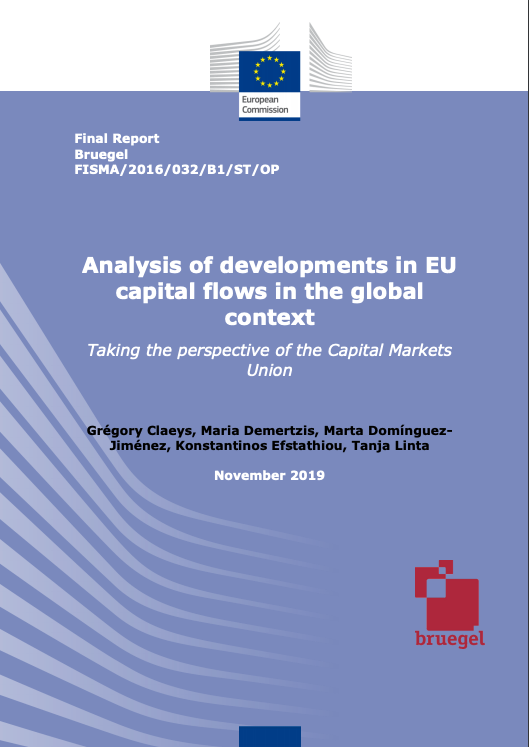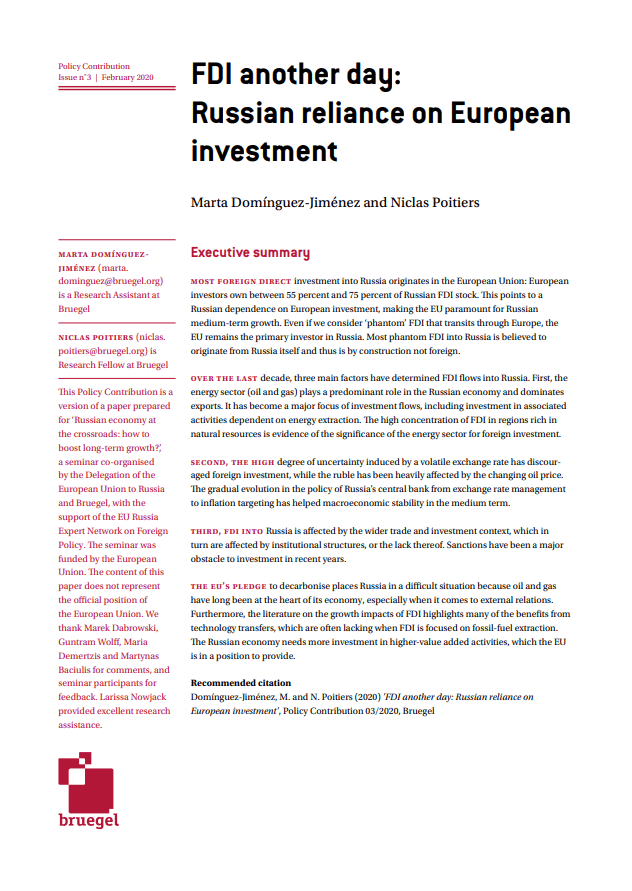External Publication

Analysis of developments in EU capital flows in the global context
This report presents an overview of the recent trends of capital flows, focused especially on the past year. It provides a detailed analysis at the global level and at the European Union level.








